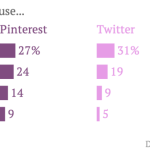En reconnaissant la possibilité pour un internaute de faire supprimer des pages de Google, la Cour européenne de justice consolide le droit à l’oubli. Plus précisément, les juges expliquent que même si des informations personnelles ont été agrégées dans un premier temps en toute légalité par un moteur de recherche, un internaute peut demander à un moteur de recherche de ne plus les utiliser si ces informations se révélaient dans un second temps « inadéquates, pas ou plus pertinentes ou excessives ».
Mois : mai 2014 (Page 4 of 10)
Future versions of the open-source Firefox browser will include closed-source digital rights management (DRM) from Adobe, the Mozilla project’s chief technology officer, Andreas Gal, announced on Wednesday. The purpose is to support commercial video streams. But this is a radical, disheartening development in the history of the organisation, long held out as a beacon for the open, free spirit of the web as a tool for liberation. As Gal’s blogpost makes clear, this move was done without much enthusiasm, out of a fear that Firefox (Mozilla’s flagship product and by far the most popular free/open browser in the world) was being sidelined by Apple, Google and Microsoft’s inclusion of proprietary technology to support Netflix and other DRM-encumbered videos in their browsers.
« That’s not necessarily a reflection of any problems at the Times but the reality of how news is now distributed on the internet. Homepage traffic is declining at most news sites as readers increasingly find links to news articles from social media, email, and other sources ». (via The homepage is dead, and the social web has won—even at the New York Times – Quartz)
Le monopole de fait de Google sur les moteurs de recherche, qui constituent la porte d’entrée principale vers le web, soulève des enjeux de souveraineté et de concurrence importants.
Downloading copyrighted material may be illegal in your country. Use at your own risk.
The United Kingdom’s top spy agency is facing legal action following revelations published by The Intercept about its involvement in secret efforts to hack into computers on a massive scale.
Revolutionizing the cash register receipt sounds like the worst kind of startup cliché, but indulge me for a moment.
The story of America’s biggest intelligence leak started simply: with an email.



